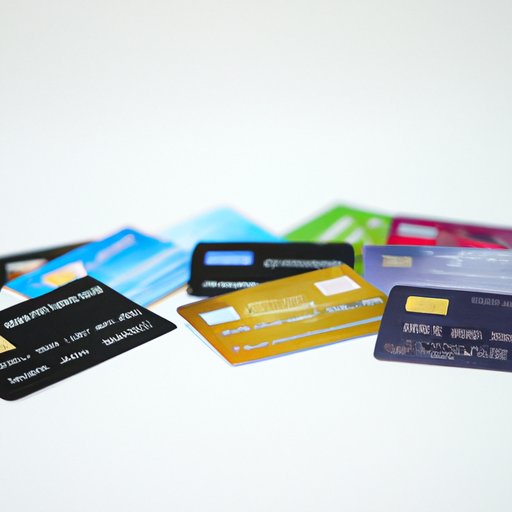
Can You Pay Bills with a Credit Card?
Paying bills is a common responsibility for most adults, but it can quickly become overwhelming when trying to juggle multiple balances at once. While traditional methods of paying bills involve checks or online bank transfers, credit cards can also be used to make payments. However, many people wonder if it’s wise to use a credit card for bills and what the potential risks and rewards are.
Pros and Cons of Paying Bills with a Credit Card
Using a credit card to pay bills can have both advantages and disadvantages. One advantage is the convenience of having all of your bills in one place, making it easier to keep track of payments and due dates. Additionally, some credit cards offer rewards or cashback for bill payments, which can add up over time and provide financial benefits.
However, there are also potential risks and downsides to using a credit card for bill payments. One major concern is the risk of accumulating debt and high-interest rates. Late payments or missed payments can result in penalties and damage to your credit score. It’s important to weigh the pros and cons before deciding if paying bills with a credit card is the right choice for you.
Step-by-Step Guide to Set Up Automated Bill Payments with a Credit Card
Setting up automatic bill payments is one way to avoid late fees and penalties. It’s important to choose a credit card that offers this feature and follow the steps to ensure payments are made on time each month. Here’s a step-by-step guide:
- Log in to your credit card account and navigate to “bill payment options”
- Select “automatic payments” and choose the option to pay your bills in full or make minimum payments
- Select the accounts and bills you want to pay with your credit card
- Choose the date you want payments to be made each month
- Review and confirm your account and payment information
Rewards and Cashback Benefits of Paying Bills with a Credit Card
Credit card rewards programs are designed to provide financial incentives to cardholders for using their card to make purchases, including bill payments. Depending on the card, rewards can include cashback, points, or miles that can be redeemed for various benefits.
When it comes to bill payments, using a credit card can provide additional rewards depending on the card and issuer. For example, some credit cards offer bonuses for paying certain types of bills, such as utilities or phone bills. Others may provide higher rewards for using automatic payments or for spending over a certain amount each month. These rewards can add up quickly and provide financial benefits for cardholders.

Tips on Maximizing Credit Card Rewards when Paying Bills
In order to maximize rewards and cashback benefits, there are strategies that cardholders can use when paying bills with a credit card:
- Choose a card with rewards that align with your spending habits and goals
- Use automatic payments to ensure bills are paid on time and to qualify for bonuses
- Consider using a rewards calendar to keep track of bonus categories and earning potential
- Pay larger bills with a credit card to maximize rewards, but avoid racking up unnecessary debt
- Redeem rewards frequently for maximum benefit
By using these strategies, cardholders can take advantage of credit card rewards programs and earn cashback or other benefits when paying bills.
Which Bills Are Best to Pay with a Credit Card and Which Ones Should Be Avoided
While credit cards can be used to pay most bills, it’s important to consider which ones are best to use for bill payments. Bills that typically incur the highest fees or interest rates, such as credit card bills or personal loans, should generally be avoided, as using a credit card can result in high-interest charges and increased debt.
Bills that are suitable for credit card payments include utilities, phone bills, and subscription services. These bills are generally lower in cost and can provide valuable rewards opportunities when paid with a credit card.
Potential Risks of Paying Bills with a Credit Card
While paying bills with a credit card can provide financial benefits, there are also risks associated with this approach. One of the main concerns is accumulating debt and high-interest rates, especially if payments are not made on time or if the cardholder carries a balance from month-to-month. Late payments or missed payments can also result in fees and penalties, as well as damage to the cardholder’s credit score.
It’s important to consider these risks and use credit cards responsibly when paying bills.
Comparison of Different Credit Cards That Offer Rewards for Bill Payments and Recommendations
When it comes to credit cards that offer rewards for bill payments, there are many different options available. Some cards provide cashback rewards, while others offer points or miles that can be redeemed for various benefits.
To choose the best card for bill payments, it’s important to consider the specific rewards offered, as well as any fees or interest rates associated with the card. It’s also important to consider the card’s eligibility requirements and any restrictions on bill payments.
Some recommended credit cards for bill payments include the Chase Sapphire Preferred, Discover it Cash Back, and Citi Double Cash Card. These cards offer valuable rewards and cashback opportunities for bill payments without excessive fees or interest rates.
Conclusion
Paying bills with a credit card can provide convenience, rewards, and other benefits, but it’s important to understand the potential risks and use credit cards responsibly. By weighing the pros and cons and using the right strategies, cardholders can take advantage of credit card rewards programs and protect their financial health.





